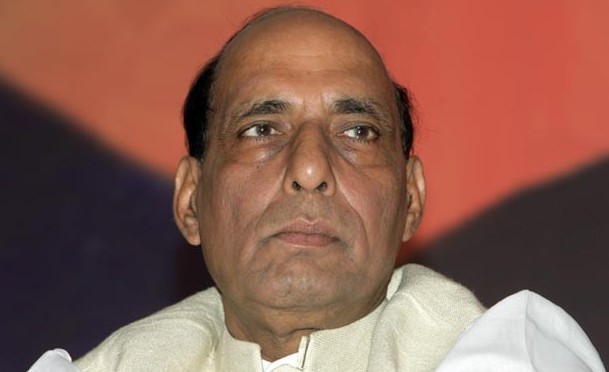
Union Home Minister supports the odd-even car scheme 09-December, 2015 .
Union Home Minister supports the odd-even car scheme
Shri Rajnath Singh seeks due care and protection for the aged, handicapped, women and relatively less well-off persons, while implementing the scheme
The Chief Minister of Delhi Shri Arvind Kejriwal called on the Union Home Minister Shri Rajnath Singh here today. He discussed the issue of the proposal to allow odd and even number vehicles to ply on alternate days in Delhi.
The Union Home Minister expressed his concern over the growing levels of pollution not only in Delhi but in the entire NCR region. He expressed his concern especially with regard to the aged, the growing up children and other vulnerable persons, and expressed the need to take necessary steps to reduce the level of pollution in the NCR region. He pointed out that it is the poor who bear the brunt of pollution. The Home Minister stated that the Government of India would cooperate in implementing the proposed scheme and would ask Delhi Police to enforce it in the best possible manner.
The Home Minister also advised the Chief Minister of Delhi to take the following in account while finalizing the scheme:-
(i) Vehicles for the handicapped.
(ii) Vehicles handling emergencies, whether classified as emergency vehicles or not and / or to increase number of ambulances.
(iii) Vehicles used by working women, driving alone.
(iv) Two-wheelers because they belong to relatively less well-off persons, who may be living in areas which are not within easy access of effective public transportation. The Home Minister reminded the Chief Minister that 57 lakh out of 88 lakh vehicles (65%) registered in Delhi are 2-wheelers.
(v) The need to improve public transportation that would be capable of daily taking the load of half the number of persons currently travelling in cars.
(vi) To guard against the possibility of misuse of the scheme by the rich, who can afford two or more vehicles, putting at disadvantage only the relatively less well-off, who can afford only one vehicle.
(vii) To have a clear policy on the visitors from nearby towns such as Chandigarh, Ambala, Rohtak, Alwar, Rewari, etc.
(viii) To co-ordinate with other towns in the NCR to encourage them to follow a similar policy, so that actual benefit accrues.
(ix) The need for Delhi Govt. to install a large number of CCTVs, since the effective monitoring of the scheme will require substantial technological support.
Shri Rajnath Singh advised Shri Arvind Kejriwal to also look at sources of pollution other than vehicles, especially industrial and commercial units and establishments not following emission norms, burning of leaves or other fires, etc.
The Union Home Minister also expressed the view that the Govt. of NCT Delhi needs to look at long-term solution even with regard to vehicles. Govt. of NCT Delhi could, for example, examine the feasibility of phasing out non-CNG vehicles from the NCT region in the next three to five years, by registering only CNG/Hybrid vehicles, and once the non-CNG, non-hybrid vehicles are phased out, even than taxing the CNG vehicles at a rate significantly higher than the rate of tax on hybrid vehicles. The Home Minister stated that such and more alternate ways should be examined by the Govt. of NCT Delhi in all their implications and ramifications including the feasibility of enough competitive availability of non-petrol, non-diesel vehicles, and feasibility of converting, in a phased manner, petrol/diesel pumps into CNG pumps.
The Union Home Minister Shri Rajnath Singh stated that all such schemes should be finalized only after widespread public consultations. It would ensure that all the stakeholders are heard and the schemes receive good support from the resident population once they are implemented.